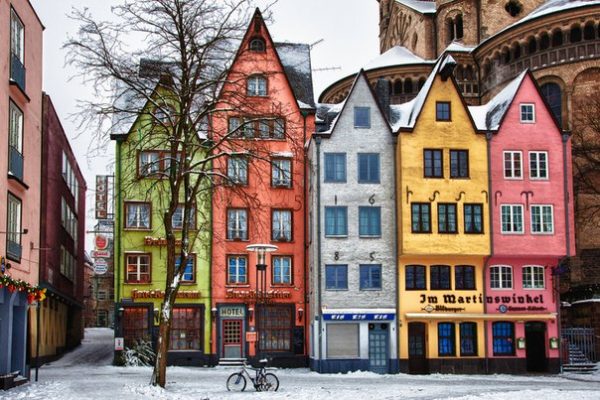Earlier we already frightened you with the horrors of the German bureaucracy, it’s time to tell how to cope with the rental of housing and begin to learn the language because without it it’s simply impossible
Germany is the country with the smallest percentage of property owners, because housing is very expensive and half of Germans live in rented apartments.
The approximate list of documents for drafting a long-term lease looks like this: a copy of the identity card (it is necessary to have the original with you), a copy of your permission to stay in the country for the entire period of renting housing (show the original too), certificate from work (if any) certificate of study (if any), an extract of the last 3 calculations from the place of employment, Schufa (certificate from the bank on the absence of debts), documents on an open account in a German bank, unpronounceable Mietschuldenfreiheitsbescheinigung (certificate that a former landlord does not have t to you claims). If any of this you do not have, this does not mean that you will not be rented out, this will only lower your chances (and the competition for housing in large cities is considerable).
When looking for an apartment, notice that there are Kaltmiete (kaltmite) and Warmmiete (varmmitia). The first is the cost of the apartment without taking into account the public services (Nebenkosten): water, heating, electricity, maintenance of the territory, payment for the elevator, etc. The second is the cost of the apartment, taking into account all services. Be sure to pay attention to which price is indicated in the ad, because Warmmiete (warm rental) is on average a few hundred euros higher than Kaltmiete (cold rent). Often they write: “Warmmiete ohne Heizung” – rent with regard to utilities, but without heating (and this is a fairly large expense item).
At the entrance you give the owner a deposit (Kaution). If the apartment is all right when you leave, you get it back (the amount often can exceed 1000 euros).
Coming to see the housing, you should not say that you’ll think about it, because there are plenty of candidates. The normal offer takes 3 hours. The viewing is not organized in order for you to look at the apartment, but for the owner to look at you.
What to do if you are in the country legally, but do not have half the documents in the list above? Excessive thrift to finance and high cost of housing gave rise to such a remarkable phenomenon as Zwischenmiete (between each other). If the owner of the apartment goes on vacation or leaves to work in another city, then the apartment is not idle, but is leased. If a German himself takes an apartment, he can retake it for a period of absence. A new tenant, respectively, retake it a third time and so on ad infinitum. For this type of lease, as a rule, you only need Personalausweis (ID), money for rent and Kaution (deposit). Sign with the owner of the contract, hastily downloaded from the Internet, and can be populated. The line of such a lease varies from two days (the owner will go to visit his parents for a weekend), up to a year.
Should I apply for services to a broker (real estate agent)? The question is ambiguous. The search for housing is not an easy job. You need to view dozens of ads, call many people and make numerous trips around the city, talking to the owners. All this in German or English. On the other hand, the cost of a broker’s services is more than 2 Kaltmiete costs, which can be 800 and 1000 euros. Modern technology allows you to find the apartment or room yourself. There are thematic groups in social networks. Enter in the search: “Hamburg accommodation” (for example). There are mobile applications that allow you to find apartments easier than buying sneakers on the Internet (WG Gesucht, Immobien Scout …). But if you are planning to rent an apartment for a long period (not 3-4 months, but more), then you can think about the services of a specially trained person. A good price will pay off his services in the long term.
That’s it, it turns out that the German bureaucracy remains a bureaucracy with a human face and will not let you freeze outside in the rain. Stay with us and find many more tips on how to live effectively and comfortably in German-speaking countries.

